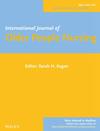Family members often undertake caregiving responsibilities over long periods of time, which could lead to caregiving burden. A theory-based and culturally sensitive learned resourcefulness program may help family caregivers mitigate stress by learning and using self-help strategies.
This study's aim is to use rigorous methods to investigate the effects of a learned resourcefulness program called SOURCE (Chen et al., Geriatric Nursing, 2021, 45, 1129) to reduce caregiver burden and improve quality of life (QOL) for family caregivers. SOURCE is an acronym for the six self-help behaviors at the core of this theory-based learned resourcefulness program, developed by the Principal Investigator (PI) in collaboration with other researchers (Chen et al., Geriatric Nursing, 2021, 45, 1129). These behaviors are: seeking problem-solving strategies, organizing daily actions, using self-regulation, reframing positive situations, changing negative self-thinking, and exploring new thinking and skills.
We used a quasi-experimental design with repeated measures for this study. The potential subjects were family caregivers whose family member was receiving home care. PI recruited 94 family caregivers (60 years old or older) who were caring for disabled and/or ill family members who also were 60 years old or older and living at home at the time of the study. The PI recruited these caregivers through the home care services department of a hospital and two community healthcare centers in Taiwan. The experimental group (n = 46) received the four-week in-person SOURCE while their family member continued to receive home care services, whereas the control group (n = 48) did not receive the SOURCE program while their family member received home care services. We collected data from the participants using the Caregiver Burden Scale, EuroQol-5 Dimension, and Rosenbaum's Self-Control Scale at baseline (T0, Week 1), after the intervention (T1, Week 5), and at follow-up (T2, Week 9). We analyzed the data using paired-sample t-tests and used the generalized estimating equation method to compare paired data between the baseline and follow-up.
Of the 94 recruited family caregivers, 90.4% (n = 85) completed the study. We found no significant differences between the experimental and control groups in terms of demographic, caregiver burden, and QOL variables at baseline. Compared to the control group, the experimental group had significantly improved caregiver burden scores (indicating a reduction in caregiver burden) at the end of the intervention and at follow-up. The experimental group had significantly improved QOL scores at follow-up only. The experimental group also showed high levels of adherence to and satisfaction with the intervention. The paired-sample t-test results show significantly improved learned resourcefulness between T0 and T1 and between T0 and T2 (t = −5.84, p < 0.001; t = −6.77, p < 0.001) for the experimental group.
The SOURCE program helped family caregivers develop and use self-help behaviors during their daily caregiving tasks. The family caregivers reported satisfaction with the program as well as reduced caregiver burden and improved QOL after the program ended.
The SOURCE program can be implemented to improve family caregivers' caregiver burden and QOL. Community health nurses can improve self-help abilities of family caregivers by helping them to acquire abilities and skills that allow them to effectively handle stress and reduce their caregiver burden.


